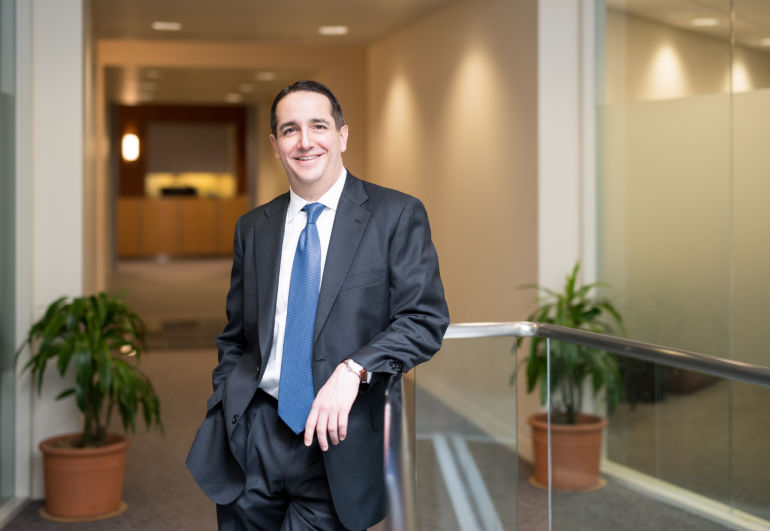
In recent months, a conversation has emerged as to whether Delaware should remain the favored state of incorporation for business entities. Indeed, many of our clients have asked us whether they should remain in Delaware or choose Delaware as the state of incorporation for their new ventures. In this discussion, we provide our reflections on that question and various factors that entrepreneurs, investors, and companies should consider when weighing incorporation in Delaware against incorporation in another state.
The Reliance on Delaware Compared to Other States
The sheer number of entities formed in Delaware reflects its dominance in this area. In 2022, more than 313,650 entities were formed in the state of Delaware, resulting in more than 1.9 million entities total in Delaware.[1] Delaware also continues to be the state of incorporation for nearly 68.2 percent of the Fortune 500, 65 percent of the S&P 500,[2] and approximately 79 percent of all U.S. initial public offerings in calendar-year 2022.[3] Of course, those numbers reflect that a substantial portion of entities are incorporated elsewhere, both within and outside of the United States. The Chief Justice of Delaware’s Supreme Court has noted that business entities indirectly or directly generate about a third of the state’s revenue.[4]
It also bears noting that Delaware has not always held the distinction as the favored destination for incorporations. Prior to the early 1900s, New Jersey had been the most significant state for incorporations.[5] Aware of New Jersey’s early success and in an effort to encourage corporations to domicile in Delaware, Delaware amended its constitution in 1897 to permit incorporation under general law instead of by special legislative mandate, and in 1899 adopted a general corporation law modeled largely after New Jersey’s approach.[6] These developments, in addition to the written opinions issued by Delaware’s Court of Chancery, helped make Delaware a natural home for corporations looking to leave New Jersey after that state adopted more restrictive laws related to corporations and trusts in 1913.[7]
A corporation’s state of incorporation is significant because that state’s laws govern the corporation’s internal corporate governance and inform how judges will review the conduct of directors and officers in stockholder litigation. As will be discussed in greater detail below, there are a number of factors that have made Delaware a favored state of incorporation for over a century.[8]
Why Is Delaware in Question?
Of course, it is critical to understand why some have called Delaware’s dominance into question. Some of the doubt has come from famous sources, such as Elon Musk’s much-publicized X (formerly Twitter) post stating, “Never incorporate your company in the state of Delaware” after the Delaware Court of Chancery rescinded his compensation package at Tesla.[9] Tesla’s stockholders are now expected to vote on the conversion of Tesla from a Delaware corporation to a Texas corporation at the company’s annual stockholder meeting on June 13, 2024.[10] In the conversations that we have had with clients, businesspeople, and others in the corporate bar, we have heard the following reasons given for reconsidering incorporation in Delaware:
- A growing number of cases that have addressed technical issues, in the M&A context and elsewhere, and reached unexpected results in a manner that has impacted corporate structuring and transaction planning
- A perception that Delaware judges have in several opinions adopted an increasingly suspicious or negative tone toward corporate boards and management, and toward the corporate bar
- The challenges that the case law can pose for companies with influential founders or significant stockholders, the process mechanisms that such companies are expected to use, and the remedies that have been reached in those cases
- A sense that Delaware judges can be skeptical of the governance of venture-backed private companies and many Silicon Valley-based companies
- The increasingly active, and successful, plaintiffs’ bar in both technical and fiduciary claims, which can leave boards and management with the sense that they are planning around “gotcha” litigation driven by plaintiffs’ lawyers more than those lawyers’ individual clients
Many of these considerations are relevant for companies of all kinds, as they undertake transactions of all sorts. As to companies with significant stockholders in particular, they frequently grapple with the framework Delaware law has set forth: transactions resulting in any arguable special benefit to the controller trigger the difficult entire fairness standard of review in stockholder litigation, unless the parties properly condition the transaction on approval by an independent board committee (which must be entirely independent) and minority stockholders.[11] This framework can feel untenable in many situations—particularly outside of the context of a sale of the company—given (1) the uncertainty that can exist in assessing board independence in some scenarios, along with the frequent occurrence that the independence of excellent board members is a close judgment call, and (2) the execution risk involved in seeking supermajority stockholder votes for all sorts of transactions. Boards of companies with large stockholders, like all boards, want to be able to guide the best interests of the company and stockholders using their fiduciary judgment, without jeopardizing their decisions. That desire is consistent with Delaware’s board-centric model.[12]
In addition, at the time of this publication, amendments to the Delaware General Corporation Law (DGCL) are under review in Delaware that would, among other things, address some of the technical issues flowing from recent case law and provide greater stability in M&A practice.[13] Given the consequence of the amendments, many are monitoring the outcome of those legislative efforts and the manner in which they are handled.
Crediting the best motives behind the concerns that have been expressed, those concerns emanate from a desire for stability, balance, and an environment that allows for the productive carrying out of corporate affairs—qualities, as we discuss below, for which Delaware has historically been known.
This is also not the first time that Delaware’s position has been questioned. For example, in the 1980s, a serious debate emerged about the ongoing favorability of Delaware.[14] Historical perspective is always valuable. But the current conversation is, in our experience and based on markers in the market,[15] serious.
Why Delaware Has Maintained Dominance
In assessing the ongoing utility of Delaware corporate law, it is important to understand what has historically given rise to Delaware’s prominence and what will undoubtedly keep Delaware in use for many business entities for years to come. The reasons for Delaware’s prominence are multi-faceted and interrelated.
A talented, responsive, and knowledgeable judiciary. A key reason for Delaware’s success is the core belief that corporate governance and business disputes will be heard by smart, unbiased, responsive, and thoughtful judges. These courts have decades of experience and a long track record of handling (often in very expedited fashion) sophisticated business disputes. Business disputes in Delaware are mostly heard and decided by the Delaware Court of Chancery (the trial court) and the Delaware Supreme Court (the appellate court). The Court of Chancery, the primary business court, is modeled and named after the traditional equity court of England and currently consists of seven judges, increased from five judges in 2018 to handle the court’s ever-growing workload. There are no juries or punitive damages. The Delaware Superior Court is the other trial court in Delaware, with jurisdiction over business disputes that do not come within the ambit of the Court of Chancery—for example, many types of contract disputes involving claims for money damages. The five judges who serve on the Complex Commercial Litigation Division of the Delaware Superior Court are experienced and routinely decide business disputes quickly, and parties can elect to proceed without a jury trial.[16]
The judges come from Delaware’s generally respected and sophisticated bar—and often its corporate bar. As a result, the judges are generally well versed or expert in corporate law from the moment they take the bench. In contrast to the approach of many other jurisdictions, Delaware judges are not elected and are instead appointed and vetted through a careful process: candidates apply to become judges; candidates are screened by Delaware’s Judicial Nominating Commission, which consists of Delaware lawyers and officials and makes recommendations to the Delaware governor; Delaware’s governors are known for carefully evaluating and selecting judges; and any judicial nominee selected by the governor must be confirmed by the Delaware Senate. Delaware’s judges serve 12-year terms.
The Delaware courts also act quickly. The Court of Chancery regularly hears fast-moving disputes with timing exigencies within weeks or months.[17] For example, in late 2023, the Delaware Court of Chancery issued a decision over the holidays in a proxy contest as a stockholder meeting loomed.[18] There is a direct right of appeal from the trial courts to the Delaware Supreme Court and, in certain circumstances, appeals can be heard on an expedited basis in a matter of weeks or even days.[19] Even in less exigent cases, the Delaware courts often hear cases in months rather than years. This speed is valuable for companies facing pressing circumstances and ever-evolving business considerations.[20]
An up-to-date and carefully considered statute. The DGCL—the corporate statute in Delaware—provides the backbone of the rules that govern Delaware corporations and is carefully reviewed each year for necessary or advisable updates. The Corporation Law Council of the Delaware State Bar Association, which consists of corporate lawyers in Delaware, recommends amendments to the DGCL based on developments in practice and the case law.[21] These amendments must then be adopted by the Delaware legislature and signed into law by the Delaware governor. In recent years, for example, the DGCL was updated, based on observed trends and difficulties encountered by Delaware corporations, to allow companies to adopt additional protections for officers and to allow companies to more easily undertake reverse stock splits. With fairly limited exceptions over time, the legislative process in Delaware is handled in an apoliticized and moderate manner, with the central aim being the maintenance of the high quality of the DGCL. Indeed, at the time of this publication, amendments to the DGCL are under review that would, among other things, address some of the technical issues flowing from recent case law and provide greater stability in M&A practice.[22]
Developed case law. The DGCL is an important feature of Delaware corporate law, but much of the richness of Delaware corporate law comes from Delaware’s judge-made case law. The case law fleshes out the DGCL where interpretation is necessary, and the case law is often the law in areas where the statute does not address an issue, such as the fiduciary duties of directors and officers and the interpretation of merger agreements. The Delaware courts have busy dockets and decide hundreds of corporate cases each year. That case law, resulting in thousands of cases over time—built up from the early 1900s forward—provides guidance to corporate actors in an array of situations. It is often the case that when a company has a question about how a dispute or issue would play out, some case law exists that provides insight into or color on the question. No state comes close to Delaware in the depth and breadth of corporate case law, and Delaware cases are routinely cited by courts in every state. Of course, this puts a premium on the case law developing in a stable manner over time.
A nimble and user-friendly Secretary of State’s Office. Corporate entities must make an array of filings with their state of incorporation in order to maintain their corporate form and effect various types of transactions. Delaware’s Division of Corporations of the Delaware Secretary of State processes corporate filings—such as certificates of incorporation, charter amendments, certificates of merger, and franchise tax documents—quickly and effectively. This is important when businesses seek, for example, to form corporate entities or to file certificates effecting mergers or initial public offerings on a fast or carefully timed basis. For many types of filings, the Division of Corporations can “pre-clear” filings by reviewing them in advance to ensure that they will be accepted for filing, and corporations can pay to have many of their filings reviewed and accepted in as little time as 30 minutes. Unlike certain other states, Delaware reviews most filings only for the form of the filing and does not conduct substantive review, which allows filings to be processed quickly. We are aware of reports from other states of routine delays—ranging from days to months—for the processing of routine corporate filings. Although the issue of filings can seem mechanical, this speed and efficiency allow transactions to happen with precision and certainty and may not be available in every state.
Delaware law’s flexibility. As to structuring companies and transactions, Delaware law has historically afforded significant flexibility to market actors. The Delaware case law has typically embraced the concept of private ordering—that is, allowing companies and investors to use the DGCL as a broad enabling statute to structure entities and transactions creatively.[23] The case law and market are replete with examples of making use of this flexibility. For example, in 2023, the Court of Chancery upheld a particular form of dual-class structure permitting holders of the same class to have different amounts of votes for their shares depending on the identity of the stockholders (founders and other large stockholders as compared to public stockholders generally).[24] In recent years, the Delaware courts upheld the use of forum selection provisions in charters and bylaws to address costly trends in stockholder litigation.[25] Limited liability companies and partnerships can be structured on an almost entirely customized basis and are creatures of contract. In 2013, Delaware introduced the Delaware public benefit corporation (PBC)–allowing corporations to be managed in a way that balances stockholder pecuniary interests, a specified public benefit purpose, and stakeholder interests—and now approximately 20 publicly traded PBCs and thousands of private PBCs exist.[26] Most recently, artificial intelligence companies have used Delaware law to innovate in their corporate structures in an effort to build guardrails and safeguards around their business.[27] In prior circumstances where Delaware law has been perceived as affording less flexibility than is desired, the DGCL has been amended to address such concern.[28]
Delaware’s sophisticated bar and Delaware law as a known currency. As Delaware has established its significance in corporate law over time, it has followed that Delaware has a large and established corporate bar available to provide sophisticated Delaware law advice and represent corporate actors in complex business disputes. Similarly, lawyers all over the country and the world are familiar and facile with Delaware law, which has in turn become the lingua franca of corporate governance and transaction planning.[29]
Consideration of Other States
For companies, entrepreneurs, and investors considering incorporation in other states, it is important to understand the substance of the corporate law in those states and the landscape of their courts. Below we summarize such considerations for two states—Nevada and Texas—that have received more attention of late, as well as California, where many companies are headquartered. Other states, such as New York, which has an established corporate bar and court system, may also be deserving of consideration. The below discussion is of course not exhaustive, but is designed to provide some sense of the differences that may exist across states that are most frequently mentioned as alternatives to Delaware.
Nevada
Substantive law. The Nevada legislature has signaled its intent to distinguish Nevada corporate law from Delaware law in certain substantive ways.[30] For example, unlike Delaware corporate law, where fiduciary duties are a matter of common law and developed through case law, the fiduciary duties of directors and officers of a Nevada corporation are codified in the Nevada Revised Statutes (NRS) and require that directors and officers “exercise their respective powers in good faith and with a view to the interests of the corporation.”[31] In contrast to Delaware corporate law, the NRS provides that a director or officer will only be liable to the corporation or its stockholders or creditors in limited circumstances where (1) the presumption of the statutory business judgment rule has been rebutted, and (2) such director or officer’s conduct constitutes a breach of such person’s fiduciary duties involving intentional misconduct, fraud, or a knowing violation of law.[32] Notably, the Nevada Supreme Court recently clarified that Nevada law does not recognize an “inherent fairness standard” with respect to its review of directors’ and officers’ liability under the NRS,[33] which differs from Delaware law’s use of the exacting entire fairness standard where, for example, a controlling stockholder gains a special benefit in a transaction or half or more of the board has a conflict and the corporation does not use certain process mechanisms. The NRS indicates that there is not to be a heightened standard of review of a change of control (in contrast to the Revlon doctrine in Delaware) unless the directors or officers take action to resist a change in control which impedes the right of stockholders to vote for or remove directors.[34] These differences appear to be a deliberate departure from Delaware’s standards,[35] and recent case law and statutory amendments confirm that the Nevada statute is the “sole avenue” to hold directors and officers liable for breach of their fiduciary duties. In the views of some, this indicates an express attempt to discourage Nevada courts’ consideration of Delaware law.[36]
Another big-picture difference between the corporate law of Nevada and Delaware arises with respect to the purpose of a corporation and the interests that the board of directors may consider when making certain decisions. Unlike for a traditional Delaware corporation, where the ultimate purpose of fiduciary duties is to advance stockholder value,[37] the Nevada legislature adopted a constituency statute specifically broadening the interests that directors and officers may consider.[38] Under Nevada law, directors and officers may consider all relevant facts, circumstances, contingencies, or constituencies, including the interests of all stakeholders affected by the corporation.[39] Additionally, directors and officers are not required to consider, as a dominant factor, the effect of a proposed corporate action upon any particular group or constituency having an interest in the corporation (i.e., stockholders).[40]
A further difference arises with respect to stockholder books and records inspection rights. Under the NRS, these rights are limited for the stockholders of private Nevada corporations to those owning not less than 15 percent of the outstanding shares of stock; there is no minimum ownership requirement under the DGCL.[41]
Courts. In 2000, the Nevada Supreme Court established business courts in Nevada’s Second and Eighth Judicial District Courts as part of Nevada’s efforts to become a “Delaware of the West.”[42] The Nevada business courts have broader jurisdictions than Delaware’s Court of Chancery, and each judicial district may have its own rules governing its business court.[43] Additionally, unlike Delaware, all judges, including those serving on the business courts, are elected in Nevada, rather than appointed by the governor.[44] It also appears that certain matters may be heard by juries in Nevada business courts.[45] Legislative sessions in Nevada are held every other year in odd-numbered years (rather than annually like Delaware), providing for a less frequent opportunity to amend the NRS to account for developments in practice or the market.[46]
Texas
Substantive law. Texas corporate law has relevant substantive differences from Delaware corporate law, while maintaining certain fundamental similarities (although, to be sure, the Texas case law is much less developed).[47] For instance, and substantively similar to Delaware, directors and officers owe the fiduciary duties of obedience, loyalty, and due care in performing their duties.[48] Practitioners have noted that, although the relevant case law is less established than in Delaware, officers also owe fiduciary duties under Texas law.[49] As in Delaware, Texas courts have adopted a form of the business judgment rule, which will protect directors and officers from being held liable for alleged breaches of duties in certain circumstances.[50] Also, similar to Delaware, a Texas corporation’s charter may contain an exculpatory provision eliminating or limiting a “governing person’s”[51] personal liability, subject to certain exceptions.[52]
An area where the contours of the corporate laws of Texas and Delaware seem to differ is with respect to the fiduciary duties owed by controlling shareholders. For example, Texas case law suggests that controlling shareholders, even in a closely held corporation, do not owe formal fiduciary duties to their fellow shareholders.[53] However, Texas courts have recognized that a relationship between particular shareholders may constitute a “confidential relationship,” which may give rise to informal fiduciary duties when influence and confidence in such shareholder has been justifiably created.[54] Additionally, a few Texas cases have alluded to a controlling shareholder owing fiduciary duties to the corporation.[55] Of course, this contrasts with Delaware, where the Delaware courts have issued hundreds of decisions providing guidance on controlling stockholder matters.
Texas corporate law also differs in some respects from Delaware law with regard to its articulation of corporate purpose. For example, the Texas Business Organizations Code (TBOC) specifically codifies the interests that directors are entitled to consider when discharging their duties as directors—and they are broader than under Delaware law.[56] Officers are entitled to consider these statutorily defined interests, subject to direction by the board of directors.[57] In addition, directors and officers may consider any “social purposes” specified in the corporation’s certificate of formation.[58] Moreover, even if a corporation’s certificate of formation does not include a social purpose, the TBOC provides that this section does not limit a director or officer from taking an action that promotes or has the effect of promoting a social, charitable, or environmental purpose.[59] Additionally, shareholders of Texas corporations have greater limitations on their ability to demand inspection of corporate books and records than do stockholders of Delaware corporations. Under the TBOC, only shareholders who have held shares for at least six months or who hold at least 5 percent of all outstanding shares may make a demand for inspection.[60] Texas law also provides appraisal rights to stockholders, which can be costly, in more types of transactions than Delaware does.[61]
Courts. In June 2023, the Texas legislature passed a law establishing business courts in Texas, and such courts will be operational as of September 1, 2024.[62] While Texas judges are generally elected,[63] the judges of the business courts will be appointed by the governor with the consent of the Texas Senate.[64] Practitioners have suggested that this arrangement may be subject to challenge under the Texas Constitution.[65] Texas has 11 judicial regions, and the business courts will first operate in five of these regions.[66] Juries will still be available in Texas business courts when required by the Texas Constitution.[67] Also, unlike Delaware, Texas has limits on fees for attorneys litigating class actions.[68] Like Nevada, the Texas legislature holds legislative sessions every other year in odd-numbered years, rather than annually.[69]
California
Substantive law. California corporate law is substantively similar to Delaware corporate law in many aspects (although the California case law is much less developed). Like Delaware, for example, directors and officers owe fiduciary duties to the corporation and its shareholders in performing their duties.[70] In addition, California courts have found that majority shareholders owe fiduciary duties to minority shareholders.[71] Also, as in Delaware, California courts have adopted a form of the business judgment rule that provides that the courts will defer to the decision-making of directors in the absence of fraud or breach of trust, and so long as no conflict of interest exists.[72] Further, the articles of incorporation of a California corporation can include an exculpatory provision eliminating or limiting a director’s personal liability, subject to certain exceptions.[73]
Despite these big-picture similarities, however, certain technical requirements of the California Corporations Code (CCC) fundamentally differ from the analogous provisions in the DGCL, which could lead to potential “foot faults” for companies more familiar with Delaware’s technical requirements. Many of these differences relate to the constitution and operation of a company’s board of directors. For example, the CCC has varying requirements relating to the number of directors that must serve on a board based on the number of shareholders of the corporation, if any, and sets forth certain approval requirements for reducing the board size in some instances.[74] Other differences include that the board can effectively remove a director if the director is declared to be of unsound mind by an order of court;[75] a board of directors may have staggered terms only if the company is listed on a requisite stock exchange;[76] a director’s term may be effectively shortened by effectuating a “voting shift”;[77] and compensation for service on a board or a committee cannot be decided by a committee of the board.[78]
Further, in contrast to the Delaware Secretary of State, the California Secretary of State plays a more substantive role in reviewing corporate filings.[79] Specifically, if the California Secretary of State determines that an instrument submitted for filing does not conform to law, the instrument may only be resubmitted if it is accompanied by a written opinion of a member of the California bar that the specific provision of the instrument objected to by the California Secretary of State does conform to law.[80]
Courts. California does not have business courts, but instead utilizes complex civil litigation dockets. The jurisdiction of these dockets is broader than that of Delaware’s Court of Chancery, and juries may be utilized.[81] Judges are elected at all levels of the California judiciary; however, judicial candidates for appellate courts and the state’s Supreme Court must first be nominated by the governor and confirmed by the Commission on Judicial Appointments. California has a full-time legislature that meets throughout the year.[82]
Franchise Taxes
Another common topic of conversation related to a corporation’s state of incorporation is franchise taxes. In Delaware, franchise taxes can be calculated based on an authorized share method or an assumed par value method.[83] The maximum annual franchise tax in Delaware is $200,000, unless a corporation qualifies as a “large corporate filer,” in which case the maximum annual franchise tax is $250,000.[84] Nevada does not impose any franchise taxes on corporations.[85] Texas imposes franchise taxes as a percentage of a corporation’s taxable margin.[86] California imposes franchise taxes based on a percentage of a corporation’s income.[87]
Where Does This Leave Companies Today?
What are companies, entrepreneurs, and investors to make of these considerations? In our view, corporate actors must understand and assess the trends that have led to this debate. Even if a given company wishes to avoid or leave behind the trends in Delaware that have given some market actors pause, the company should carefully consider relevant counterpoints.
- The company should understand the substantive law of another state under consideration, at least as to its material contours, including how a given body of law approaches the purpose of the corporation and the fiduciary duties and accountability of the board and management.
- The company should consider whether any case law exists to give guidance on the future needs of the company; that statutes and case law may differ in meaningful ways from Delaware; and whether the company will find it acceptable to be told that the answer may be less clear in another state or that the answer will be more expensive to obtain because of the lack of guidance. Questions that a lawyer may be able to answer under Delaware law in 15 minutes may take significant exploration and research in another state—and even then, may yield an unclear answer, or no answer at all. Of course, some of the recent unpredictability in the Delaware case law impacts this analysis.
- The company should consider the court system of other states—for example, whether judges less familiar with corporate law may decide a dispute; whether a jury proceeding, along with the different dynamics that brings, is a risk; and whether the courts will move as quickly as they do in Delaware. Additionally, there are potentially meaningful fiduciary duty and litigation considerations with moving a company out of Delaware, as evidenced by recent litigation in Delaware that will now go to the Delaware Supreme Court.[88]
- Finally, it is important to keep in mind the other efficiencies involved in using Delaware law, such as the relative ease of making corporate filings in Delaware and the familiarity that transactional lawyers and investors have with Delaware law, all of which can facilitate the speed and accomplishment of transactions.
There are many reasons why, in our view, Delaware is likely to remain in use for some time, and we have attempted to outline several of them here. That said, we have seen a growing number of corporate actors evidence some willingness to explore giving a different state a try and a real debate emerge over these issues. We recognize and understand that debate, while also recognizing the ongoing vibrancy and substantial benefits of Delaware law, its judiciary, and its corporate infrastructure. As this debate continues, corporate boards must consider these issues in the same way they consider all issues that go to the core business judgment of directors, and other corporate actors must consider the full dimensions of these issues as well.
For more information on any of these matters, please contact any member of Wilson Sonsini’s corporate governance or corporate governance litigation practices.
[1] Delaware Division of Corporations: 2022 Annual Report, Del. Div. of Corps. (2022), https://corpfiles.delaware.gov/Annual-Reports/Division-of-Corporations-2022-Annual-Report.pdf [hereinafter the DE 2022 Annual Report].
[2] By way of comparison, while 325 S&P 500 companies are incorporated in Delaware, four are incorporated in California, four are incorporated in Texas, and three are incorporated in Nevada. See Capital IQ Company Screening Report, S&P 500 (Apr. 15, 2024).
[3] DE 2022 Annual Report, supra note 1.
[4] Sarah Petrowich, Judicial Branch Requests Funding for New Positions to Decrease Judicial Officer Case Load, Del. Pub. Media (Feb. 15, 2024), https://www.delawarepublic.org/politics-government/2024-02-15/judicial-branch-requests-funding-for-new-positions-to-decrease-case-load-of-judicial-officers.
[5] See Samuel Arsht, A History of Delaware Corporate Law, 1 Del. J. Corp. L. 1, (1976); Donald F. Parsons Jr. & Joseph R. Slights III, The History of Delaware’s Business Courts, 17-APR Bus. L. Today 21 (2008).
[6] Arsht, supra note 5, at 6–7; How Delaware Became No. 1, NY Times (May 9, 1976), https://www.nytimes.com/1976/05/09/archives/how-delaware-became-no-1.html.
[7] Parsons & Slights, supra note 5.
[8] Lewis S. Black Jr., Why Corporations Choose Delaware, Del. Dept. of State (2007), https://corpfiles.delaware.gov/pdfs/whycorporations_english.pdf.
[9] Tornetta v. Musk, 310 A.3d 430 (Del. Ch. 2024).
[10] Tesla, Inc., Preliminary Proxy Statement for 2024 Annual Meeting of Stockholders (Schedule 14A) (Apr. 17, 2024), https://www.sec.gov/ix?doc=/Archives/edgar/data/0001318605/000110465924048040/tm2326076d13_pre14a.htm.
[11] In re Match Grp., Inc. Derivative Litig., 2024 WL 1449815 (Del. Apr. 4, 2024).
[12] W. Palm Beach Firefighters' Pension Fund v. Moelis & Co., 2024 WL 747180 (Del. Ch. Feb. 23, 2024); Air Prods. & Chems., Inc. v. Airgas, Inc., 16 A.3d 48 (Del. Ch. 2011); In re TW Services, Inc. S’holders Litig., 1989 WL 20290 (Del. Ch. Mar. 2, 1989).
[13] Additional information about recent developments in Delaware law and proposed statutory amendments can be found in a client alert by our firm available at: https://www.wsgr.com/en/insights/recent-delaware-law-developments-and-proposed-legislative-responses.html.
[14] Wachtell, Lipton, Rosen & Katz, The Interco Case (Nov. 3, 1988), https://www.law.upenn.edu/live/files/7876-culled-martin-lipton-publicationspdf (“The Interco case[,] and the failure of Delaware to enact an effective takeover statute, raise a very serious question as to Delaware incorporation. New Jersey, Ohio and Pennsylvania, among others, are far more desirable states for incorporation than Delaware in this takeover era. Perhaps it is time to migrate out of Delaware.”).
[15] See Ellen Bardash, A Legal ‘Doomsday’?: Delaware Faces Criticism at Tulane Conference, Law.com (Mar. 8, 2024), https://www.law.com/delbizcourt/2024/03/08/a-legal-doomsday-delaware-faces-criticism-at-tulane-conference/; Rose Krebs, Del.’s Corp. Law Dominance A Hot Topic At Tulane Conference, Law360 (Mar. 7, 2024), https://www.law360.com/pulse/delaware-pulse/articles/1811403/del-s-corp-law-dominance-a-hot-topic-at-tulane-conference; Theo Francis & Erin Mulvaney, Elon Musk Isn’t the Only Billionaire Fighting Delaware, Wall St. J. (Feb. 11, 2024), https://www.wsj.com/business/elon-musk-isnt-the-only-billionaire-fighting-delawares-grip-on-u-s-business-e9fe299a.
[16] See, e.g., C. Malcolm Cochran, Jason J. Rawnsley, & Katharine C. Lester, Delaware’s Business Courts: The Complementary Nature of the Court of Chancery and the Superior Court’s Complex Commercial Litigation Division, RLF (May 2014), https://www.rlf.com/wp-content/uploads/2020/05/10482_CMC-Delawares-Business-Courts.pdf; Joseph R. Slights III & Elizabeth A. Powers, Delaware Courts Continue to Excel in Business Litigation with the Success of the Complex Commercial Litigation Division of the Superior Court, 70 Bus. Law. 1039 (2015).
[17] In 2022, 36 percent of new cases were accompanied by requests for expedition. 2022 Annual Report of the Delaware Judiciary: Court of Chancery (2022), https://courts.delaware.gov/aoc/annualreports/fy22/doc/Chancery2022.pdf. The number of new cases seeking expedition increased by 8 percent in 2023. 2023 Annual Report of the Delaware Judiciary: Court of Chancery (2023), https://courts.delaware.gov/aoc/annualreports/fy23/doc/Chancery2023.pdf.
[18] Kellner v. AIM ImmunoTech Inc., 307 A.3d 998 (Del. Ch. 2023).
[19] See William M. Lafferty, et al., Initial Civil Appeals: Delaware, Practical Law State Q&A (Mar. 9, 2023), https://www.morrisnichols.com/media/publication/15232_Initial%20Civil%20Appeals%20Delaware%20_w-000-3316.pdf (discussing right to appeal directly to the Delaware Supreme Court); see also, e.g., Box v. Box, 697 A.2d 395, 399 (Del. 1997) (“Delaware courts are always receptive to expediting any type of litigation in the interests of affording justice to the parties.”); VantagePoint Venture Partners 1996 v. Examen, Inc., 871 A.2d 1108, 1109 (Del. 2005) (resolving expedited appeal in one month); Paramount Commc’ns Inc. v. QVC Network Inc., 637 A.2d 34, 36 n.1 (Del. 1994) (noting expedited appeal resolved in less than three weeks); Sup. Ct. R. 25 (“Upon motion for good cause shown or upon the Court’s order sua sponte, the Court may order an expedited schedule of any or all procedures, including a shortened time for the filing of briefs and other papers, in any appeal or other proceeding.”).
[20] Matthew Jennejohn, How Does Delaware Do It? Judges Alone Don’t Explain Chancery’s Speed, CLS Blue Sky Blog (July 28, 2022), https://clsbluesky.law.columbia.edu/2022/07/28/how-does-delaware-do-it-judges-alone-dont-explain-chancerys-speed/.
[21] Roberta Romano, The States As A Laboratory: Legal Innovation and State Competition for Corporate Charters, 23 Yale J. on Reg. 209, 225 (2006), https://media.law.wisc.edu/m/wyjg2/romano-state_innovation_in_corporate_law-2.pdf.
[22] Additional information about recent developments in Delaware law and proposed statutory amendments can be found in a client alert by our firm available at: https://www.wsgr.com/en/insights/recent-delaware-law-developments-and-proposed-legislative-responses.html.
[23] See Salzberg v. Sciabacucchi, 227 A.3d 102 (Del. 2020); Boilermakers Loc. 154 Ret. Fund v. Chevron Corp., 73 A.3d 934 (Del. Ch. 2013); Manti Holdings, LLC v. Authentix Acquisition Co., Inc., 261 A.3d 1199 (Del. 2021).
[24] Colon v. Bumble, Inc., 305 A.3d 352 (Del. Ch. 2023); Vestal v. Carvana Co, 2023 WL 6311498 (Del.Ch. Sep. 27, 2023).
[25] Salzberg v. Sciabacucchi, 227 A.3d 102 (Del. 2020); Boilermakers Loc. 154 Ret. Fund v. Chevron Corp., 73 A.3d 934 (Del. Ch. 2013).
[26] Additional information on PBCs can be found in a client alert by our firm available at: https://www.wsgr.com/print/v2/content/227022/Converting-to-a-Delaware-Public-Benefit-Corporation%3A-Lessons-from-Experience.pdf.
[27] See Amy Simmerman, David Berger & John Morley, Anthropic Long-Term Benefit Trust, Harv. L. Sch. F. on Corp. Governance (Oct. 28, 2023), https://corpgov.law.harvard.edu/2023/10/28/anthropic-long-term-benefit-trust/.
[28] Romano, supra note 21.
[29] See, e.g., Robert Bartlett, Standardization and Innovation in Venture Capital Contracting: Evidence from Startup Company Charters (Rock Center for Corporate Governance at Stanford University Working Paper No. 253, 2023), https://papers.ssrn.com/sol3/papers.cfm?abstract_id=4568695 (finding that 54 percent of sample “Series A” financings from venture capital-backed investments used Delaware corporations in 2004, up to 100 percent in 2022, with 2.8 percent of the charters in 2004 being based on the NVCA form, up to nearly 85 percent in 2022); ABA Mergers & Acquisitions Committee, U.S. Public Target M&A Deal Points Study, ABA (2024), https://public.tableau.com/app/profile/aba.deal.points/viz/2024ABADealPointsStudy/Home#1 (finding that 85 percent of public company merger agreements reviewed in the sample set were governed by Delaware law).
[30] See Adam Chodorow & James Lawrence, The Pull of Delaware: How Judges Have Undermined Nevada’s Efforts to Develop Its Own Corporate Law, 20 Nev. L.J. 401 (2020); see also Nev. Rev. Stat. § 78.012 (“The plain meaning of the laws enacted by the Legislature in this title, including, without limitation, the fiduciary duties and liability of the directors and officers of a domestic corporation set forth in NRS 78.138 and 78.139, must not be supplanted or modified by laws or judicial decisions from any other jurisdiction.”); TripAdvisor, Inc., Definitive Proxy Statement for 2023 Annual Meeting of Stockholders (Schedule 14A) (April 26, 2023), https://www.sec.gov/ix?doc=/Archives/edgar/data/1526520/000095017023014532/trip-20230426.htm (providing a comparison of Delaware and Nevada law).
[31] Nev. Rev. Stat. § 78.138(1). A form of the business judgment rule is also codified in Nevada. Nev. Rev. Stat. § 78.138(3).
[32] Nev. Rev. Stat. § 78.138(7).
[33] Guzman v. Johnson, 483 P.3d 531, 537 (Nev. 2021) (“Applying the same rationale, we now conclude that the inherent fairness standard cannot be utilized to rebut the business judgment rule and shift the burden of proof to the individual directors. Such a standard would contravene the express provisions of NRS 78.138(7) and render meaningless the statute’s requirement that the plaintiff must establish a breach involving intentional misconduct, fraud, or a knowing violation of law.”); see also In re Newport Corp. S’holder Litig., 507 P.3d 182 (Nev. 2022) (“The cases shareholders provide do not substantiate their claims because they apply Delaware’s less-forgiving inherent-fairness standard to assess the directors’ actions, which Nevada does not.”).
[34] Nev. Rev. Stat. § 78.139(1). This seemingly represents a doctrinal shift, as there is evidence of heightened standards of review being applied in certain prior case law. See Shoen v. SAC Holding Corp., 137 P.3d 1171, 1178 (Nev. 2006) (“In essence, the duty of care consists of an obligation to act on an informed basis; the duty of loyalty requires the board and its directors to maintain, in good faith, the corporation’s and its shareholders’ best interests over anyone else’s interests.”), abrogated by Guzman v. Johnson, 483 P.3d 531, 537 (Nev. 2021); Hilton Hotels Corp. v. ITT Corp., 978 F. Supp. 1342, 1346–47 (D. Nev. 1997) (“ITT argues that Nevada does not follow Delaware case law since N.R.S. § 78.138 provides that a board, exercising its powers in good faith and with an [sic] view to the interests of the corporation can resist potential changes in control of a corporation based on the effect to constituencies other than the shareholders. However, the corporate rights provided under N.R.S. § 78.138 are not incompatible with the duties articulated in Unocal Corp. v. Mesa Petroleum Co., 493 A.2d 946 (Del. 1985), Revlon Inc. v. MacAndrews & Forbes Holdings, Inc., 506 A.2d 173 (Del. 1986) and Blasius Indus. Inc. v. Atlas Corp., 564 A.2d 651 (Del. Ch. 1988). Delaware case law merely clarifies the basic duties established by the Nevada statutes.”). For an overview of the Nevada legislature’s response to these cases, see Chodorow & Lawrence, supra note 30.
[35] However, Nevada corporate law does recognize that controlling stockholders owe fiduciary duties that are subject to rigorous judicial scrutiny. Guzman, 483 P.3d at 541 (Pickering, J., concurring in part and dissenting in part) (“Though superseded as to directors by NRS 78.138—and perhaps due for refinement as to majority shareholders—Foster v. Arata states the general rule correctly: A majority shareholder is a fiduciary whose ‘dealings with the corporation are subjected to rigorous scrutiny and where any of their contracts or engagements with the corporation is challenged the burden is on the … [majority] stockholder not only to prove the good faith of the transaction but also to show its inherent fairness.’”) (citing Foster v. Arata, 325 P.2d 759, 765 (Nev. 1958)).
[36] See Chur v. Eighth Jud. Dist. Ct. in & for Cnty. of Clark, 458 P.3d 336, 340 (Nev. 2020) (“We therefore take this opportunity to clarify Shoen. We reject the district court’s determination that Shoen provided a separate breach-of-the-duty-of-care claim apart from the strictures of NRS 78.138. Thus, we disavow Shoen to the extent it implied a bifurcated approach to duty-of-care and duty-of-loyalty claims, and we give effect to the plain meaning of NRS 78.138. Accordingly, we conclude that NRS 78.138 provides the sole avenue to hold directors and officers individually liable for damages arising from official conduct.”); Chodorow & Lawrence, supra note 30, at 418 (“In response to a string of judicial decisions misinterpreting and misapplying Nevada corporate law, the Nevada Legislature passed Senate Bill (SB) 203 in June 2017. SB 203 is the Legislature’s third attempt to distinguish Nevada and Delaware corporate law.”).
[37] Simeone v. Walt Disney Co., 302 A.3d 956, 958 (Del. Ch. 2023); eBay Domestic Holdings, Inc. v. Newmark, 16 A.3d 1, 33 (Del. Ch. 2010).
[38] Nev. Rev. Stat. § 78.138(4).
[39] Nev. Rev. Stat. § 78.138(4) (“Directors and officers, in exercising their respective powers with a view to the interests of the corporation, may: Consider all relevant facts, circumstances, contingencies or constituencies, which may include, without limitation, one or more of the following: (1) The interests of the corporation’s employees, suppliers, creditors or customers; (2) The economy of the State or Nation; (3) The interests of the community or of society; (4) The long-term or short-term interests of the corporation, including the possibility that these interests may be best served by the continued independence of the corporation; or (5) The long-term or short-term interests of the corporation’s stockholders, including the possibility that these interests may be best served by the continued independence of the corporation.”).
[40] Nev. Rev. Stat. § 78.138(5).
[41] Nev. Rev. Stat. § 78.257; 8 Del. C. § 220.
[42] Business Court, https://www.leg.state.nv.us/App/InterimCommittee/REL/Document/21387; Joshua Halen, Transforming Nevada into the Judicial Delaware of the West; How to Fix Nevada’s Business Courts, 16 J. Bus. & Sec. L. 139, 162 (2015).
[43] See Nev. 2D J. Dist. Ct. R. 2.1.; Nev. 8TH J. Dist. Ct. R. 1.61.
[44] Halen, supra note 42, at 169.
[45] See The Publications Committee of the State Bar of Nevada, Nevada Jury Instructions: Civil, at 295 (2018), https://ag.nv.gov/uploadedFiles/agnvgov/Content/Issues/09292021_NV-Jury-Instructions-Civil-2018-PDF-version.pdf; Halen, supra note 42, at 165 (“The main concerns of the Business Courts have been its broad subject matter jurisdiction, retention of juries, and unpublished opinions”).
[46] Nev. Const. art. 4, § 2.
[47] See also Tesla, Inc., Preliminary Proxy Statement for 2024 Annual Meeting of Stockholders (Schedule 14A) (Apr. 17, 2024), https://www.sec.gov/ix?doc=/Archives/edgar/data/0001318605/000110465924048040/tm2326076d13_pre14a.htm (providing a comparison of Delaware and Texas law).
[48] Gearhart Indus., Inc. v. Smith Int’l, Inc., 741 F.2d 707, 719 (5th Cir. 1984) (explaining that, under Texas law, (i) the duty of obedience requires a director to avoid committing ultra vires acts, (ii) the duty of loyalty requires that a director must act in good faith and must not allow his personal interests to prevail over the interests of the corporation, and (iii) the duty of due care requires that a director must handle his corporate duties with such care as an ordinarily prudent man would use under similar circumstances); Ritchie v. Rupe, 443 S.W.3d 856, 868 (Tex. 2014) (citing Gearhart with approval).
[49] Troy L. Harder & Ian R. Brown, Corporation Law: Texas, Practical Law State Q&A 0-518-6489 (Feb. 15, 2024). The Texas courts have often discussed the duties of officers and directors in the same breath when addressing fiduciary duties. See, e.g., Sneed v. Webre, 465 S.W.3d 169, 173, 178 (Tex. 2015) (“The business judgment rule in Texas generally protects corporate officers and directors, who owe fiduciary duties to the corporation, from liability for acts that are within the honest exercise of their business judgment and discretion.”); Loy v. Harter, 128 S.W.3d 397, 407 (Tex. App. 2004) (“The Texas Supreme Court in Int’l Bankers Life Ins. Co. v. Holloway, 368 S.W.2d 567 (Tex.1963), noted that corporate officers and directors owe a strict fiduciary obligation to their corporation. Three broad duties stem from the fiduciary status of corporate officers and directors: namely, the duties of obedience, loyalty, and due care.”).
[50] Sneed, 465 S.W.3d at 178 (internal citations omitted).
[51] “Governing person means a person serving as part of the governing authority of an entity.” Tex. Bus. Orgs. Code Ann. § 1.002(37).
[52] Tex. Bus. Orgs. Code Ann. § 7.001. The exculpation exceptions are similar, but not identical, to those found in Section 102(b)(7) of the DGCL, and include: “(1) a breach of the person’s duty of loyalty, if any, to the organization or its owners or members; (2) an act or omission not in good faith that: (A) constitutes a breach of duty of the person to the organization; or (B) involves intentional misconduct or a knowing violation of law; (3) a transaction from which the person received an improper benefit, regardless of whether the benefit resulted from an action taken within the scope of the person’s duties; or (4) an act or omission for which the liability of a governing person is expressly provided by an applicable statute.”
[53] See Ritchie, 443 S.W.3d at 876 n.27 (“With regard to formal fiduciary duties, this Court has never recognized a formal fiduciary duty between majority and minority shareholders in a closely-held corporation.”); Hoggett v. Brown, 971 S.W.2d 472, 488 (Tex. App. 1997) (“Similarly, a co-shareholder in a closely held corporation does not as a matter of law owe a fiduciary duty to his co-shareholder.”); Willis v. Donnelly, 199 S.W.3d 262, 276 (Tex. 2006) (declining to address whether a majority shareholder in a closely held corporation owes a minority shareholder a general fiduciary duty under Texas law).
[54] See Flanary v. Mills, 150 S.W.3d 785, 794 (Tex. App. 2004) (“While shareholders generally do not owe each other a fiduciary duty, they may in some circumstances, such as when a confidential relationship exists. A confidential relationship exists where influence has been acquired and confidence has been justifiably reposed. A person is justified in placing confidence in the belief that another party will act in his or her best interest only where he or she is accustomed to being guided by the judgment or advice of the other party, and there exists a long association in a business relationship, as well as personal friendship.”) (internal citations and quotations omitted); Ritchie, 443 S.W.3d at 876 n.27 (Tex. 2014) (“Informal fiduciary duties arise from a moral, social, domestic, or purely personal relationship of trust and confidence.”) (internal quotations omitted).
[55] Hoggett, 971 S.W.2d at 488 n.13 (“We note that a majority shareholder’s fiduciary duty ordinarily runs to the corporation.”); Schautteet v. Chester State Bank, 707 F. Supp. 885, 889 (E.D. Tex. 1988) (“Texas courts have properly limited the scope of majority fiduciary duties, because most abuses of majority control constitute breaches of the fiduciary duties the majority owes to the corporation, just as officers and directors owe fiduciary duties solely to the corporation.”).
[56] Tex. Bus. Orgs. Code Ann. § 21.401(b) (providing that such interests are “the long-term and short-term interests of the corporation and the shareholders of the corporation, including the possibility that those interests may be best served by the continued independence of the corporation.”).
[57] Tex. Bus. Orgs. Code Ann. § 21.401(d).
[58] Tex. Bus. Orgs. Code Ann. § 21.401(c), (d).
[59] Tex. Bus. Orgs. Code Ann. § 21.401(e).
[60] Tex. Bus. Orgs. Code Ann. § 21.218. However, this section does not impair the power of a court, on presentation of proof of a proper purpose by a beneficial or record holder of shares, to compel production of the corporation’s books and records regardless of the period during which the shares were held or the number of shares held. Tex. Bus. Orgs. Code Ann. § 21.218(c).
[61] Tex. Bus. Orgs. Code Ann. § 10.354.
[62] Adolfo Pesquera, The Business Courts Are Coming—Can They Meet Expectations?, Law.com (July 20, 2023), https://www.law.com/texaslawyer/2023/07/20/the-business-courts-are-coming-can-they-meet-expectations/.
[63] Tex. Const. art. V.
[64] Pesquera, supra note 62.
[65] See Mark C. Walker, Texas’ New Business Courts and Court of Appeals, Dickinson Wright (Aug. 2023), https://www.dickinson-wright.com/news-alerts/texas-new-business-courts-and-court-of-appeals.
[66] Id.
[67] Id.
[68] Tex. R. Civ. Pro. 42(i).
[69] Tex. Const. art. III, § 5.
[70] The common law setting forth the fiduciary duties of directors was codified in Section 309(a) of the CCC, and provides as follows: “A director shall perform the duties of a director, including duties as a member of any committee of the board upon which the director may serve, in good faith, in a manner such director believes to be in the best interests of the corporation and its shareholders and with such care, including reasonable inquiry, as an ordinarily prudent person in a like position would use under similar circumstances.” California case law also provides that officers who participate in management of a corporation are fiduciaries to the corporation. Brent A. Olson, Cal. Bus. Law Deskbook § 2:25 (2023).
[71] See, e.g., Jones v. H. F. Ahmanson & Co., 460 P.2d 464, 471 (Cal. 1969) (“The Courts of Appeal have often recognized that majority shareholders, either singly or acting in concert to accomplish a joint purpose, have a fiduciary responsibility to the minority and to the corporation to use their ability to control the corporation in a fair, just, and equitable manner. Majority shareholders may not use their power to control corporate activities to benefit themselves alone or in a manner detrimental to the minority. Any use to which they put the corporation or their power to control the corporation must benefit all shareholders proportionately and must not conflict with the proper conduct of the corporation’s business.”).
[72] See, e.g., Desaigoudar v. Meyercord, 133 Cal. Rptr. 2d 408, 415 (Cal. Ct. App. 2003) (“The business judgment rule is premised on the notion that management of the corporation is best left to those to whom it has been entrusted, not to the courts. The rule requires judicial deference to the business judgment of corporate directors so long as there is no fraud or breach of trust, and no conflict of interest exists. The rule has been codified in Corporations Code section 309.3 which requires a director to perform ‘in good faith, in a manner such director believes to be in the best interests of the corporation and its shareholders and with such care, including reasonable inquiry, as an ordinarily prudent person in a like position would use under similar circumstances.’”) (internal citations omitted).
[73] Cal. Corp. Code § 204(a)(10).
[74] Cal. Corp. Code § 212.
[75] Cal. Corp. Code § 302.
[76] Cal. Corp. Code § 301.5.
[77] Cal. Corp. Code §§ 301(a), 194.7 (A “voting shift” is “a change, pursuant to or by operation of a provision of the articles, in the relative rights of the holders of one or more classes or series of shares, voting as one or more separate classes or series, to elect one or more directors.”).
[78] Cal. Corp. Code § 311(c). Board committees must also consist of two or more directors. Cal. Corp. Code § 311.
[79] Cal. Corp. Code § 110(b); Cal. Corp. Code § 119; see also Julia Reigel & Angie P. Flaherty, California Adopts Ratification and Verification Statute for Corporations, Wilson Sonsini Client Alert (Sept. 2, 2022), https://www.wsgr.com/en/insights/california-adopts-ratification-and-verification-statute-for-corporations.html.
[80] Cal. Corp. Code § 110(b).
[81] The California Rules of Court define a complex case fairly broadly, calling it “an action that requires exceptional judicial management to avoid placing unnecessary burdens on the court or the litigants and to expedite the case, keep costs reasonable, and promote effective decision making by the court, the parties, and counsel.” See Complex Civil Guidelines: Guidelines and Protocols Complex Civil Litigation Department, Superior Ct. of Cal (Feb. 28, 2024), https://www.scscourt.org/court_divisions/civil/complex/ComplexCivilLitigationGuidelines.pdf (explaining jury protocols for complex civil litigation department).
[82] Judicial Selection: How California Choose Its Judges and Justices, Cal. Cts. Newsroom, https://newsroom.courts.ca.gov/branch-facts/judicial-selection-how-california-chooses-its-judges-and-justices.
[83] See 8. Del. C. § 503(a).
[84] 8 Del. C. § 503(c).
[85] Ellen Schulhofer & Albert Z. Kovacs, Corporation Law: Nevada, Practical Law State Q&A 9-517-8404, (July 2023).
[86] Franchise Tax Overview, Tex. Comptroller (2023), https://comptroller.texas.gov/taxes/publications/98-806.php.
[87] Cal. Rev. & Tax. Code § 23151.
[88] Palkon v. Maffei, 2024 WL 678204 (Del. Ch. Feb. 20, 2024).
Contributors
-
 Amy L. Simmerman
Amy L. Simmerman -
 Brad Sorrels
Brad Sorrels -
 William B. Chandler III
William B. Chandler III -
 David J. Berger
David J. Berger -
 Ryan J. Greecher
Ryan J. Greecher -
 James G. Griffin-Stanco
James G. Griffin-Stanco -
 Andrew D. Cordo
Andrew D. Cordo -
 Shannon E. German
Shannon E. German -
 Adrian S. Broderick
Adrian S. Broderick -
 Allurie Kephart
Allurie Kephart -
 Angie P. Flaherty
Angie P. Flaherty -
 Sarah Hand
Sarah Hand -
 Brian Currie
Brian Currie -
 Larry W. Sonsini
Larry W. Sonsini -
 Katharine A. Martin
Katharine A. Martin -
 Rezwan D. Pavri
Rezwan D. Pavri -
 Douglas K. Schnell
Douglas K. Schnell -
 Katherine L. Henderson
Katherine L. Henderson -
 Douglas J. Clark
Douglas J. Clark -
 Caz Hashemi
Caz Hashemi -
 Allison B. Spinner
Allison B. Spinner
- Privacy Policy
- Terms of Use
- Accessibility